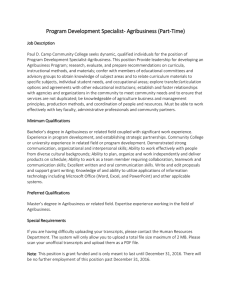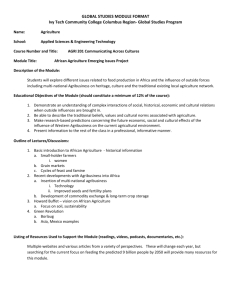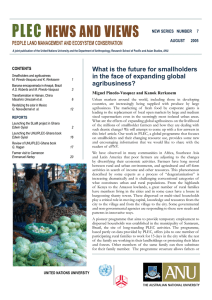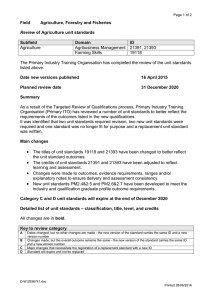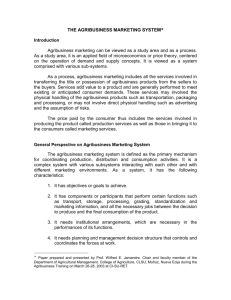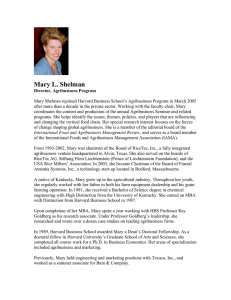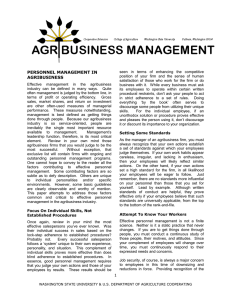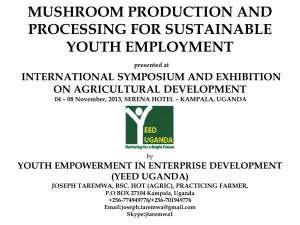AMSHA-YIA presentation
advertisement
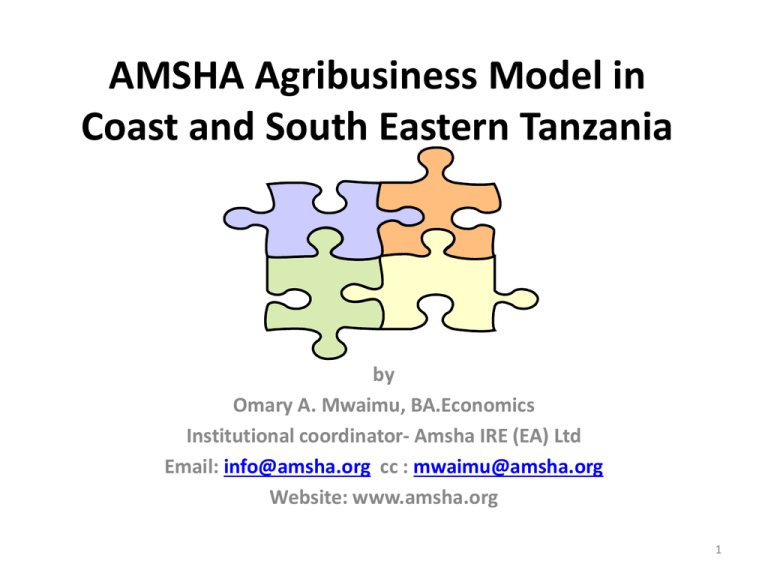
AMSHA Agribusiness Model in Coast and South Eastern Tanzania by Omary A. Mwaimu, BA.Economics Institutional coordinator- Amsha IRE (EA) Ltd Email: info@amsha.org cc : mwaimu@amsha.org Website: www.amsha.org 1 Background • AMSHA Institute of Rural Entrepreneurship (EA) Limited which is a company limited by guarantee and not having share capital. • ‘Amsha’ is a Swahili word, which means awaken, arouse, stimulate. • In this case it means awaken, educate and build capacity to self-employ in commercial agriculture within rural settings of Tanzania and East Africa in general 2 • The main activities of Amsha are entrepreneurial mindset development and sustainable rural development through agribusiness promotion. • In supporting youth in agriculture, Amsha has about 1000 youth in groups of about 10-20 people in Coast and South Eastern Tanzania. • Also Amsha initiate various youth in agribusiness programs like TYIAF – Tanzania Youth in Agribusiness Forum with collaboration with other institute/ company like TGFA, SNV, among others. 3 Impact • Bring together low or ordinarily educated rural farmers and highly educated and professional urban prospective farmers. • Launched four Amsha Agribusiness services centers with the aim of promoting and bringing closer the agribusiness activities/services to the farmers. 4 • Food and livelihood security is guaranteed because every member, must have both subsistence and commercial farm plot. • Transforming subsistence agriculture into commercial farming. 5 Challenges and related strategic solutions • Fear of change (“How possible? Who have tried it? How if I lose my…?” • Lack of direct government support, especially the district agriculture and livestock department • Limited local and international institutional network or collaboration or Limited awareness on national and international opportunities in the agriculture sector 6 • Lack of direct government support, especially the district agriculture and livestock department. • Lack of social security system to cater for health and education services to members. • Lack of responsive financial support system to offset seasonal financial needs of farmers. 7 How to attract and retain youth in the agribusiness sector • Stakeholders must articulate a new vision of agriculture that can be attractive to the young people and align with their aspirations and interests. • Agriculture must be transformed from purely subsistence to commercial farming, where farmers undertake agriculture as a business. 8 • The negative image and perceptions about agriculture in the face of the youth should be changed. • The Ministry of agriculture can, for example, set up a Youth Advisory Committee to look into various ways of attracting and retaining the youth in this sector. • The Government should strengthen and maintain agricultural institutions for extension, research and innovation, credit, agro-processing and marketing in order to enhance efficiency and effectiveness of farming enterprises. 9 • Appropriate affordable financial packages are put in place by financial institutions involved in agricultural lending- access to finance • Deliberate efforts by agri-support agencies to make inputs such as good seed, fertilizers, basic mechanization and agricultural market information available and affordable should be undertaken. 10
